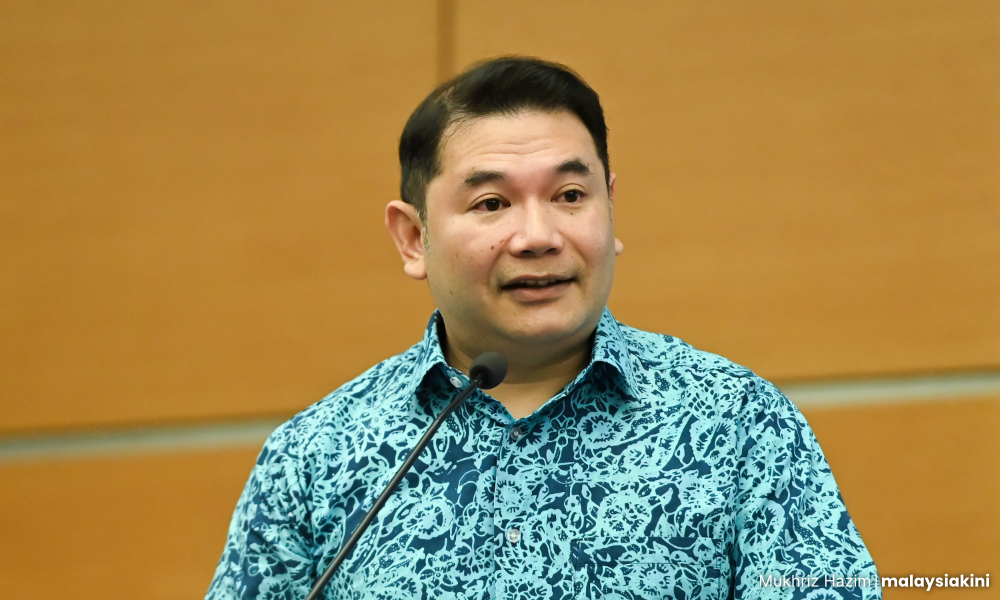MP SPEAKS | As Malaysia celebrates Labour Day, it falls apposite at this juncture to pause and reflect on our policies surrounding labour.
The motivation underlying labour, at its very crux, is one: wages. At the most basic level, everyone works to earn wages to sustain living.
Are our policies surrounding wages, however, sound, sufficient and comprehensive?
Progressive wage policy
In November 2023, Economy Minister Rafizi Ramli announced the government’s adoption of the progressive wage policy.

Progressive wage is where the minimum monthly salary received by workers responds to their job responsibilities and the training they have received. It assures career advancement and enhances productivity in the workplace.
Albeit government policy, its implementation is voluntary and does not bear the bite of legislation. It is an incentive tied to the productivity of workers.
Although the progressive wage policy is often presented overseas as a superior alternative to the minimum wage policy - and while it must be acknowledged that progressive wage brings various advantages to certain sectors of employment - it is imperative to also pay heed to its various shortcomings.
As the progressive wage policy is voluntary, there are certain issues of compliance whereby not all sectors and employers may adopt and practice this policy. It can be simply ignored.
Further, employers may likely apply this policy to only “formal workers” whereas a large number of “informal workers” and foreign workers may not benefit from the same.
Apart from this, there is also an equal possibility that the progressive wage increase may be vastly insufficient to meet the rise in the rate of inflation.
Hence, the progressive wage policy, while being sound public policy, is not entirely inclusive in nature and is susceptible to abuse.
Minimum wage
In Malaysia, section 23 of the National Wages Consultative Council Act 2011 (“the Act”) provides that the government may by order set a minimum wage in the country. Under sections 22 and 25 of the Act, the National Wages Consultative Council makes a recommendation to the government on the minimum wage rate, and this is to be conducted at least once every two years.
This present statutory set-up presents issues.
Inflation, a price rise in necessities, especially food, occurs ever so frequently. At times, possibly every few months. Especially during this period of global economic uncertainty due to various geopolitical factors.
But with the minimum wage only statutorily subject to review every two years, by the time the said review is conducted, the difference between the wage raise and inflation is already vast.

Consequently, a holistic approach to minimum wage reform is imperative. One that transcends sectoral boundaries and prioritises the welfare of all workers, especially those in the lower income brackets.
To achieve this, what is required is an assured yearly increase in the country’s minimum wage by a certain percentage, taking into account the inflation rate, and going above it. This inclusive wage reform will ensure a dignified increase yearly in wages for all workers so that they may earn enough to keep afloat above the inflation rate.
The call for an annual increase in minimum wage is not just a matter of economic policy; it is a moral imperative. No individual should be left behind in our pursuit of a fair and equitable society. Wage reform must be inclusive and responsive to the needs of all Malaysians, particularly those who are most vulnerable.
Harmonising progressive wage and minimum wage
As we discuss an annual increase in minimum wage, one may in turn pose the question: what then about the progressive wage policy?
I would contend that the minimum wage policy complements the progressive wage policy. Both can be harmonised and implemented simultaneously.
The minimum wage policy with its annual increase will ensure that there is a basic minimum wage above the inflation rate for all workers whereas the progressive wage policy will incentivise workers to upskill and increase their productivity to earn wages higher than their minimum wage.
Upskilling
While discussing wages, the dire need to upskill employees cannot be simply ignored.
Upskilling allows employees to adapt to the constantly evolving nature of jobs these days and vast advancements in technology almost daily. Upskilling fosters a skilled and change-resilient workforce which in turn facilitates an increase in innovation, efficiency and productivity.
It is important both for advancing personal career development and for the long-term success of industries in a rapidly changing world.

It is incumbent upon the government to foster an environment where individuals can enhance their skills through reskilling and upskilling initiatives, thereby augmenting their earning potential and contributing to overall productivity.
The government must hence invest in upskilling of the country’s workforce which can be by way of subsidies for upskilling courses. This will likely be a part of the core of the progressive wage policy and is a most welcomed move by the government.
In Malaysia, the pursuit of economic empowerment and social justice hinges on the ability of every Malaysian to access living wages above the inflation rate and opportunities for career development. Let us move towards an inclusive wage policy.
As we commemorate Labour Day, let us remind ourselves of the need to strive together to build an inclusive Malaysia: where all workers may earn liveable wages, enjoy stable increases in the same, and are able to live a dignified life. - Mkini
M Kula Segaran is Ipoh Barat MP.
The views expressed here are those of the author/contributor and do not necessarily represent the views of MMKtT.

No comments:
Post a Comment
Note: Only a member of this blog may post a comment.